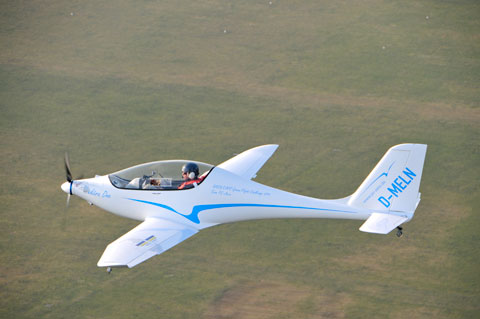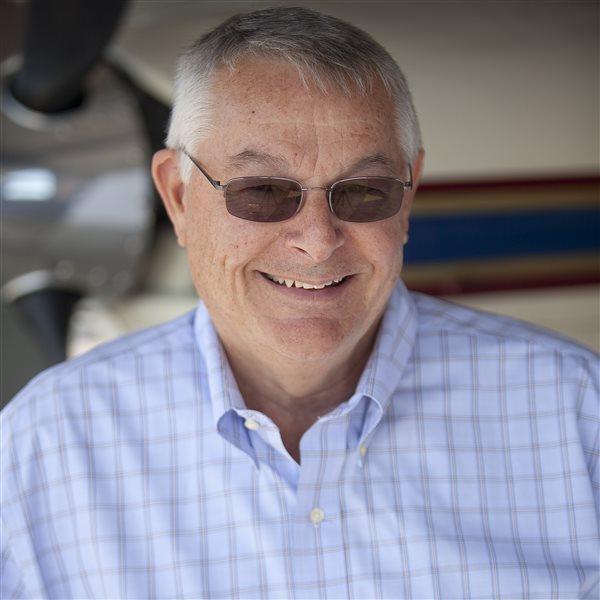
Electric airplanes are getting more numerous, with the latest making its initial flight in Augsburg, Germany. The Elektra One, developed by Calin Gologan of PC-Aero, was flown by test pilot Jon Karkow.
Since that flight, the aircraft has completed an additional three flights for up to 30 minutes. It will next be upgraded with a variable pitch prop and retractable landing gear.
Karkow was the project leader and test pilot for the around-the-world Virgin Global Flyer, and more recently served as technical program manager for the Virgin Galactic commercial space program at Scaled Composites in California.
The single-seat Elektra One is claimed to have a three-hour endurance using rechargeable batteries and a range of more than 216 nm. The aircraft has a payload of 220 pounds and is claimed to cruise at 86 knots.
It is the first of a family of airplanes. The Elektra Two will carry two passengers, while the Elektra Four will carry four. Half of the design work is completed for the two-seat model.
Every electric airplane needs a solar-powered hangar, right? After all, there is a lot of battery recharging to do between flights. Elektra One comes with its own solar-powered hangar. The complete system, airplane and hangar, will enter the market at a goal price of $141,300, a variable price based on the Euro.
The aircraft will first be offered in Germany in the Ultralight class, or it can be sold in the United States as Experimental when it comes to market. Eventually it will be sold as a U.S. light sport aircraft, when ASTM standards are completed for electric aircraft. That could take one to two years, designer Gologan said in a telephone interview from Germany. Gologan will complete German and ASTM certification, and then sell the project to Neo Wings for serious production.
The aircraft will enter the NASA/CAFÉ Green Flight Challenge in July 2011. The aircraft will be shown at Aero Friedrichshafen in April, where it will enter a separate competition for efficient aircraft. Its hangar will be used at the show.
“We are [going to be] flying at zero carbon dioxide, a three-hour endurance, noise of 50 decibels, which is half that of an LSA and five times less than a Part 23 airplane, and at low cost of $35 to $40 per hour,” Gologan said.



